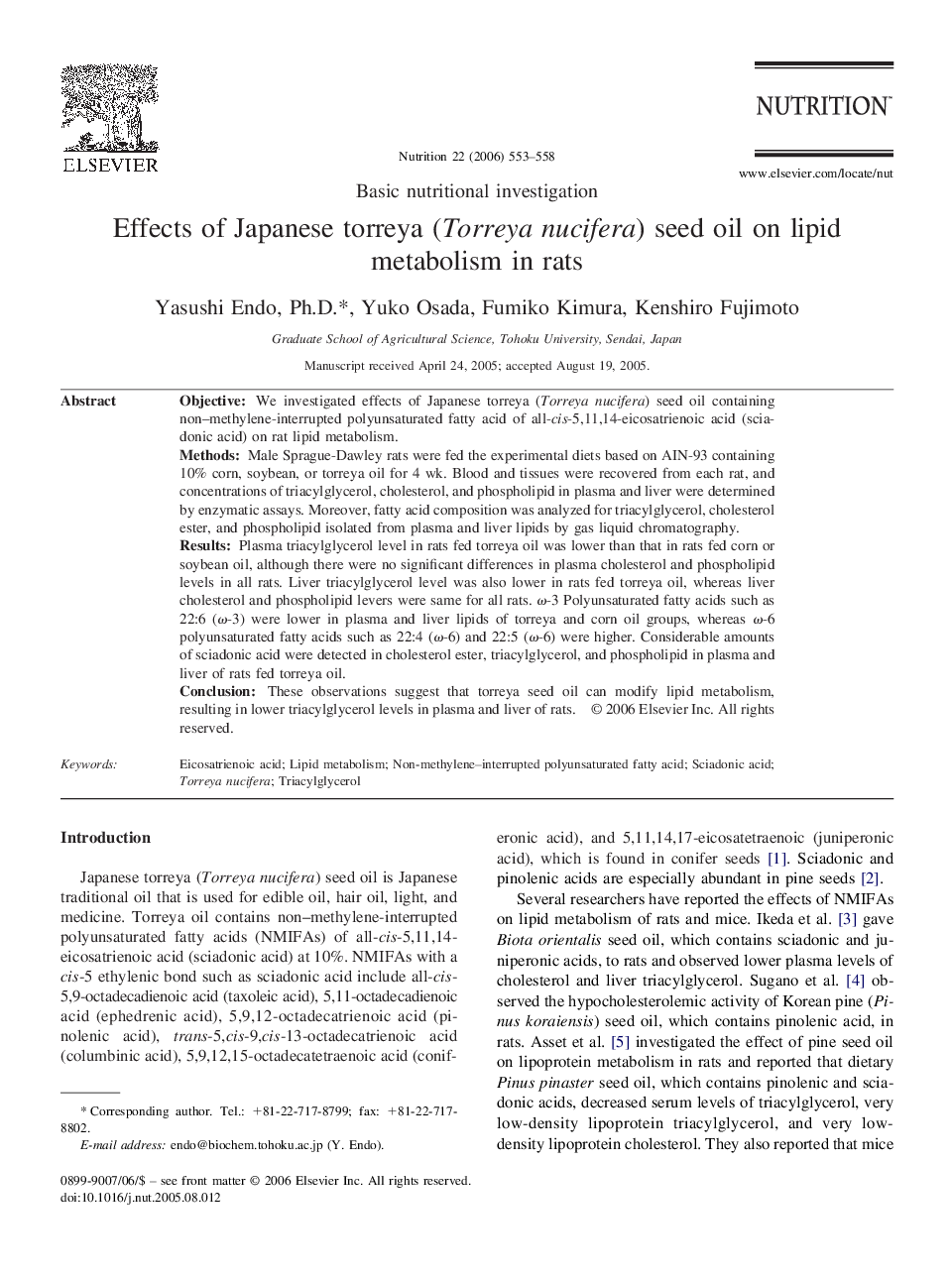| Article ID | Journal | Published Year | Pages | File Type |
|---|---|---|---|---|
| 3277807 | Nutrition | 2006 | 6 Pages |
ObjectiveWe investigated effects of Japanese torreya (Torreya nucifera) seed oil containing non–methylene-interrupted polyunsaturated fatty acid of all-cis-5,11,14-eicosatrienoic acid (sciadonic acid) on rat lipid metabolism.MethodsMale Sprague-Dawley rats were fed the experimental diets based on AIN-93 containing 10% corn, soybean, or torreya oil for 4 wk. Blood and tissues were recovered from each rat, and concentrations of triacylglycerol, cholesterol, and phospholipid in plasma and liver were determined by enzymatic assays. Moreover, fatty acid composition was analyzed for triacylglycerol, cholesterol ester, and phospholipid isolated from plasma and liver lipids by gas liquid chromatography.ResultsPlasma triacylglycerol level in rats fed torreya oil was lower than that in rats fed corn or soybean oil, although there were no significant differences in plasma cholesterol and phospholipid levels in all rats. Liver triacylglycerol level was also lower in rats fed torreya oil, whereas liver cholesterol and phospholipid levers were same for all rats. ω-3 Polyunsaturated fatty acids such as 22:6 (ω-3) were lower in plasma and liver lipids of torreya and corn oil groups, whereas ω-6 polyunsaturated fatty acids such as 22:4 (ω-6) and 22:5 (ω-6) were higher. Considerable amounts of sciadonic acid were detected in cholesterol ester, triacylglycerol, and phospholipid in plasma and liver of rats fed torreya oil.ConclusionThese observations suggest that torreya seed oil can modify lipid metabolism, resulting in lower triacylglycerol levels in plasma and liver of rats.
